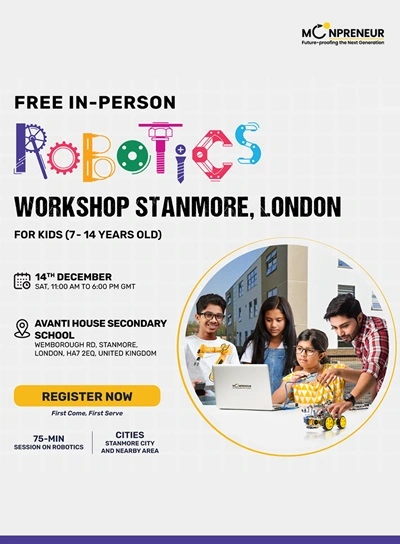
Moonpreneur
For a very long time, it was believed that humans are driven by emotions and not rationality. It is true that emotions play a significant role in human decision-making, and many important events throughout history have been driven by emotions.
For example, World War II was partly sparked by the anger and resentment felt by Germany after its defeat in World War I.
It is important to note that emotions and rational thinking are not mutually exclusive. Both play a role in human decision-making, and the most successful individuals are often those who can balance and integrate both into their thinking.
What is Rational Thinking?
Rationality, at its core, helps humans make informed decisions, solve problems, and evaluate evidence, arguments, and information in a logical and systematic way.
It has been observed that children who develop rational thinking skills perform better academically and have better social skills. For example, research has found that teaching critical thinking skills to elementary school children can improve their reading comprehension and help them navigate the complex world around them.
Parents and the immediate environment of children play a crucial role in developing their rational thinking skills. In this article, we will discuss some tips on how parents can support their children’s development of rational thinking:
How to help children develop rational thinking?
1. Encourage questions
We often cringe at the thought of kids asking us too many questions. But did you know encouraging your child to ask questions can help them develop their rational thinking skills?
While it can sometimes be overwhelming to answer all of their inquiries, it’s important to foster their curiosity and critical thinking abilities by welcoming their questions about the world around them.
Don’t be afraid to admit when you don’t know the answer, as this can teach your child that it’s okay not to have all the answers and that seeking knowledge is a lifelong pursuit. So embrace those questions – they may just help your child become a more thoughtful and inquisitive individual.
2. Teach problem-solving skills
One effective way to help your child approach problems systematically is by teaching them the problem-solving process.
This involves breaking down the problem into smaller, more manageable parts, identifying possible solutions, evaluating the pros and cons of each solution, and selecting the best course of action.
Encourage your child to take their time with this process and remind them that it’s okay if they don’t get it right the first time.
3. Emotional regulation
Another valuable skill for kids to learn is emotional regulation. This involves identifying and managing their own emotions and understanding and empathizing with the emotions of others.
One way to help your child develop emotional regulation skills is by talking to them about their emotions and helping them find healthy ways to express and manage them. You can also model emotional regulation for your child by managing your own emotions in a healthy way.
4. Engage in discussions
When was the last time you had a healthy discussion with your kids about new policies, current events, political dilemmas, or life?
One way to promote rational thinking is by exposing your child to various viewpoints. Encouraging your child to think critically and express their own opinions in a respectful and constructive way can help them learn how to respect different perspectives.
A good advice to foster productive discussions is to ask open-ended questions so they can explore new ideas without the fear of judgment. Such healthy and productive conversations also help them develop confidence in their rational thinking abilities.
5. Play games that require critical thinking
Looking for a fun and engaging way to develop rational thinking skills in your child? Consider playing games that require them to use their critical thinking and decision-making skills.
Some examples of games that can help develop critical thinking skills include chess, checkers, and other strategy games. Board games like Settlers of Catan or Ticket to Ride, and Moonpreneur business strategy board game are also good options.
6. Read together
Books can be an excellent source to inspire rational thinking in kids. Reading books can help children develop critical thinking skills, explore different perspectives, and develop language and social skills.
But simply handing over the books to them won’t cut it. As a parent, you need to be equally involved in reading sessions. Read along and help kids understand complex concepts better to learn to become thoughtful, curious, and informed individuals.
There are many great books that can help develop rational thinking skills in children. Here are my top 3 recommendations:
- “The Magic of Reality” by Richard Dawkins
- “Thinking, Fast and Slow” by Daniel Kahneman
- “The Boy Who Harnessed the Wind” by William Kamkwamba and Bryan Mealer
7. Model rational thinking
Last and most important one, model rational thinking yourself!
- Why did you make certain decisions that you did when your kids were looking?
- Did you fire an employee lately? What was the reason?
- What are your thoughts on the political leaders of our country? Why do you have those biases?
The idea is to explain your decision-making process to your child, especially when they seem observant and curious. This will help them understand how to approach problems and make informed decisions.
Conclusion
Even if you do this regularly, it will be beneficial.
Overall, the art of rational thinking is a critical skill for children to develop, and it is never too early to start teaching them. Always remember that helping your child develop rational thinking skills takes time and patience, but the benefits are worth the effort.
Moonpreneur is dedicated to transforming conventional education, preparing the next generation with comprehensive learning experiences. Our Innovator Program equips students with vital skills in AI/ML, Robotics, Coding, Game Development, and App Development, fostering entrepreneurship through hands-on learning. This initiative aims to cultivate the workforce of tomorrow by integrating innovative technologies and practical skills in school curriculums.
Register for a 60-minute free workshop today!
















